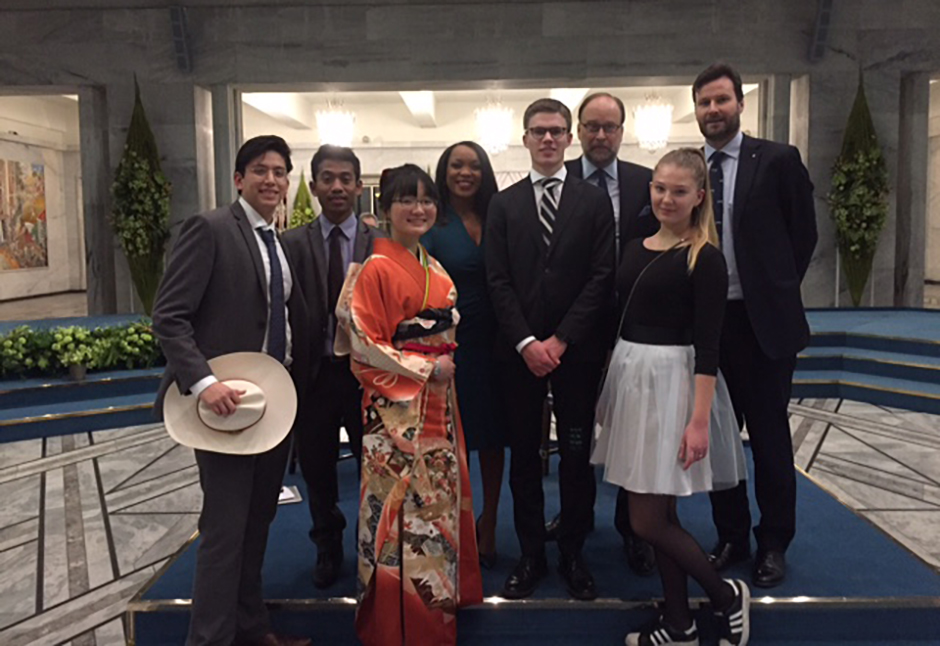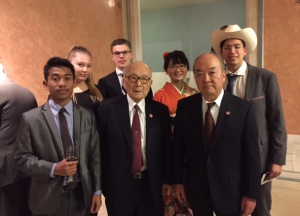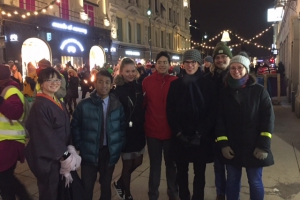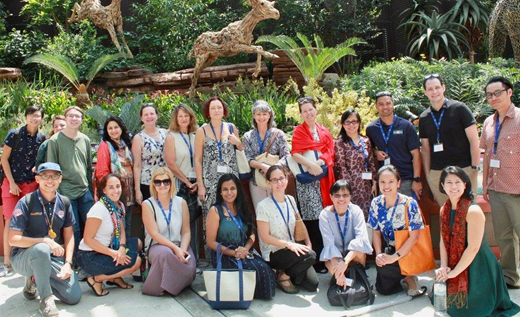Nobel Peace Prize 2017
Five UWC Red Cross Nordic students – Akari (Japan), Henrik (Norway), Jinho (East Timor), Jorge (Mexico), Mikkeline (Denmark) – and one member of staff (Larry, our Rektor) attended the 2017 Nobel Peace Prize Ceremony in the City Hall in Oslo on Sunday 10th December.
The Nobel Peace Prize 2017 was awarded to the International Campaign to Abolish Nuclear Weapons (ICAN). The organization received the award for its work to draw attention to the catastrophic humanitarian consequences of any use of nuclear weapons and for its ground-breaking efforts to achieve a treaty-based prohibition of such weapons.
Please see the links for a) the presentation speech by Berit Reiss-Andersen, Chair of the Nobel Committee and b) the Nobel Lecture delivered jointly by ICAN’s Executive Director Beatrice Fihn (Sweden) and Setsuko Thurlow (Japan).
And here is Al Jazeera’s coverage of the Nobel Interview with Beatrice Fihn.
As Beatrice Fihn warned in her acceptance a speech we are a ‘tantrum away’ from a nuclear war.
The world turns its attention every year to the Nobel Peace Prize in Oslo and, given UWC’s mission for peace and a sustainable future, it is pertinent that our students are invited to attend the ceremony. The awarding of the prize this year holds special significance for us as a College given we currently have two Japanese students on campus – Akari and Chisato.
Akari took the initiative to set up a meeting directly before the ceremony with representatives from the Japan Confederation of A- and H-Bomb Sufferers Organization: Terumi Tanaka Representative (experienced the A-bomb in Nagasaki) and Toshiki Fujimori, the Deputy Secretary General (experienced the A-bomb in Hiroshima). All students from RCN were invited to submit questions in advance and Akari translated and relayed them to the two survivors.
Our students were interviewed by various Japanese news agencies.
Our students were also invited to participate in a news forum in the City Hall, coordinated by Al Jazeera, with two of our students (Henrik and Akari) invited to deliver the following questions to Beatrice Fihn:
- What do you think about Norway voting against the nuclear ban treaty?
- Do you realistically see a future in the world with a stable power balance, where nuclear weapons are not involved?
The news feature is available on Al Jazeera’s website.
We concluded an exciting day by joining the candlelit peace parade through the streets of Oslo to the Grand Hotel where the prize winners greeted the general public from the balcony.
Given UWC’s commitment to ‘peace and a sustainable future’, please join us here at UWC Red Cross Nordic and across all 17 UWCs (including our sister college in Japan which opened this year as a UWC) in congratulating ICAN for its ongoing commitment to a world without nuclear weapons – and in celebrating the award of this year’s Nobel Peace Prize.
Larry Lamont
Rektor






